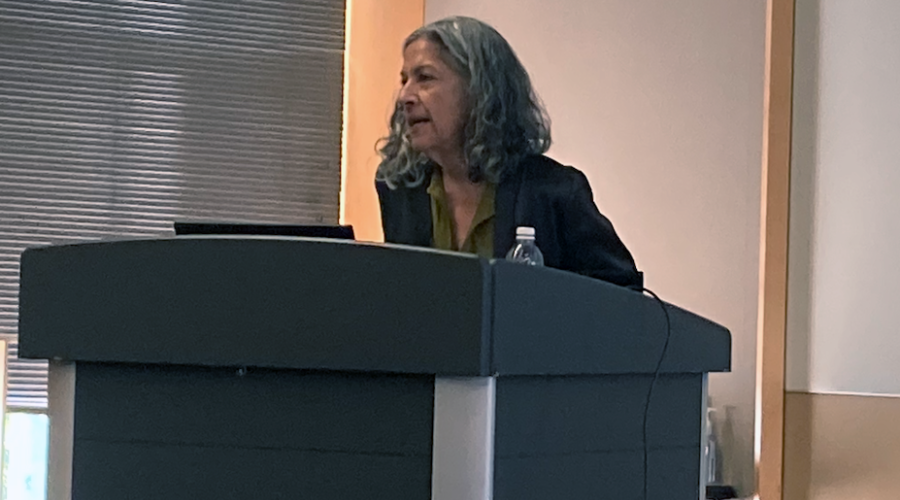
Cook-Gray Lecturer Emphasizes Empathy
ILR faculty and students from departments across Cornell gathered on Oct. 23 for the 2023 Alice Cook-Lois Gray Distinguished Lecture by Amherst College Professor Amrita Basu, A&S ’75.
Her lecture highlighted the unusual way that Muslim women in India protested the passage of the “Citizenship Act” that restricted the citizenship rights of Muslims. The women launched a spontaneous sit-in that turned into a four-month non-violent blockade of a major road into Delhi at Shaheen Bagh – a large Muslim ghetto.
Basu’s talk outlined how women can play a unique role in sparking change and encouraging dialogue in repressive environments. India’s ruling party, the Bharatiya Janata Party, has promoted Hindu authoritarianism and minority subjugation.
The women also protested police brutality, poverty, unemployment and women’s safety.
Basu, the Domenic J. Paino 1955 Professor of Political Science, and Sexuality, Women's and Gender Studies at Amherst College, went to Shaheen Bagh during the protests to interview the women. One of the protestors, Amira Rashir, criticized the government for funneling funding toward discriminatory immigration practices targeted at Muslim people instead of spending money on programs for poor women.
Basu underscored how the Shaheen Bagh activists emphasized empathy and inclusivity – the intersectionality of religion, nationality, and feminism. They drew support each day from thousands and thousands of men and women from different social classes and religions. “They offered comfort and a sense of community for all,” Basu said.
The professor also emphasized the uniqueness of the Shaheen Bagh feminist movement, as it focuses on elevating women’s roles within the family rather than protesting the sexual division of labor. The women of Shaheen Bagh also emphasized their collective support for the state of India. Basu said they drew a strong connection between their national duty and their roles as mothers, making personal affairs political.
Another woman at the sit-in told Basu, “The movement made society realize that a woman’s purpose is not just to have children and cook food. We have capabilities that are repressed.”
The Shaheen Bagh sit-ins spread across India and gave people the tools to respond to unjust laws in a peaceful and democratic way – redefining what it meant to have power and who could have legitimacy as a political activist and leader, Basu said.
Basu ended her lecture by encouraging the celebration of “the power of marshaling empathy and kindness to overcome fear and foster community across markets or differences.”
The ILR annual lecture is named for deceased ILR faculty members Alice Hanson Cook and Lois Spier Gray and is held to advance their social justice and equality visions. This year’s event was co-sponsored by Feminist, Gender, and Sexuality Studies, Center for the Study of Inequality, Cornell Center for the Social Sciences, Cornell Population Center, Jeb E. Brooks School of Public Policy and the South Asia Program.

